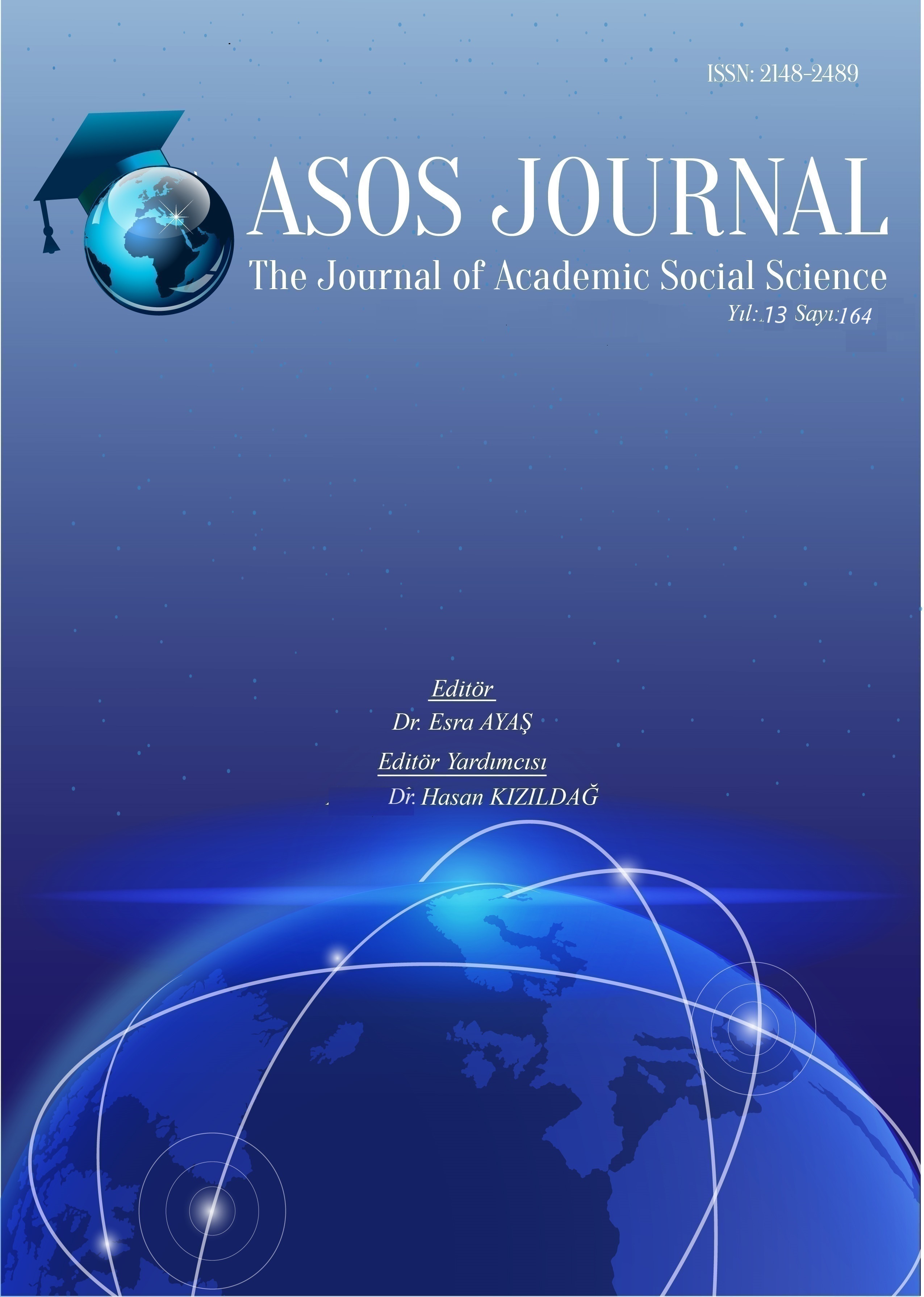Author :
Abstract
Meta on to kavramı kısaca, ötesi var olan anlamına gelmektedir. Bir varlık olmanın ne demek olduğu bu kelimelerin kavramsallaştırılmasıyla felsefi bir olgu haline gelir. Bir idea olarak anlamlaşan varlık bir hakikat olarak kavramsallaşır ve felsefe, hakikatin nasıl bir varlık yapısına sahip olduğunu belirlemeye çalışır. Antik Çağda Aristoteles’e göre ilk felsefe olan metafizik, temel olarak var olan nedir sorununu araştırır. Dolayısıyla Antik Çağda ilk felsefe; varlığı saltık bir olgu olarak tanımla- maya çalışır. İşte burada Aristoteles, felsefenin temel sorunsalıyla sanatın asıl sorunsalı olan varlık arayışlarını meta on to yani ötesi var olan kavrayışı içerisinde birbiriyle ilişkilendirir. Sanat da kendi alanında, tıpkı felsefedekine benzer bir temelde metafizikleşerek mutlak bir var olan olarak sanata ve dolayısıyla da sanat eserine dönüşür. Bu makaledeki temel problem; bir varlık paradigması olarak “çağdaş soyut sanatta metafizik olgusallığın”, felsefi yaklaşımlarla karşılaştırılarak, düşünsel yaratıcılık ve anlamlandırma bilinci açısından incelenmesini ifade etmek- tedir. Bu bağlamda araştırmanın amacı; sanatla felsefe arasında var olan ortak noktalardan hareket edilerek, “metafiziğin yaratıcı düşünceler açısından bir varlık kavrayışı olması temelinde”, soyutlaşma olgusunun kavramsal olgusallıkla ilişki- lenme biçimini analiz etmektir. Bu kapsamda; sanat ve metafizikle ilgili çeşitli kaynaklardan yararlanılarak, “sanatın kavradığı metafizikle felsefenin tanımladığı metafiz algılama içerisinde”, kavramsal soyutlaşmaya yönelik düşünce biçimlerinin sorgulanma ve anlamlandırılma yöntemleri, “yaratıcı düşüncelerin kavramsal iliş- kileri” olarak ifade edilmeye çalışılmıştır.
Keywords
Abstract
The concept of meta on to briefly means that which exists beyond. What it means to be a being becomes a philosophical phenomenon through the conceptualisation of these words. The being that is conceptualised as an idea is conceptualised as a truth, and philosophy tries to determine what kind of an existence structure the truth has. According to Aristotle, metaphysics, which is the first philosophy in Antiquity, basically investigates the problem of what exists. Therefore, the first philosophy in Antiquity tries to define existence as an absolute fact. Here Aristotle relates the basic problematic of philosophy and the search for existence, which is the main problematic of art, within the concept of meta on to, that is, what exists beyond. Art becomes metaphysical in its own field, on a basis similar to that of philosophy, and turns into art as an absolute being and thus into the work of art. The main problem of this article is to analyse the “metaphysical phenomenality in contemporary abstract art” as a paradigm of being in terms of intellectual creativity and the consciousness of signification by comparing it with philosophical appro- aches. In this context, the aim of the research is to analyse the way in which the phenomenon of abstraction is related to conceptual factuality, ‘on the basis of metaphysics being a conception of existence in terms of creative thoughts’, based on the common points that exist between art and philosophy. In this context, by making use of various sources related to art and metaphysics, the methods of ques- tioning and making sense of the forms of thought towards conceptual abstraction, ‘within the metaphysics perception defined by art and the metaphysics perception defined by philosophy’, have been tried to be expressed as ‘conceptual relations of creative thoughts’.





